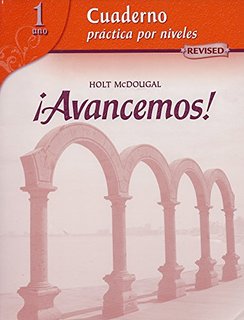
All Solutions
Page 127: Gramatica C
The objective of this exercise is to practise the use of unstressed forms of the possessive adjective in Spanish.
In this exercise, you are given an incomplete text. Read it twice to understand its meaning. Then, go ahead and complete it with the appropriate unstressed forms of the possessive adjective.
Think grammar and meaning at the same time, as it will help you understand the text and use the right adjective. You may follow the below solutions for further guidance.
Imagine you are talking to your brother. You will say something about your parents. In Spanish, you would normally use the possessive adjective “mis” instead of “nuestros”. You both know, however, that your brother’s parents are your parents as well. There is no connotation applied to “mis” in this case, i.e. no one will think you are taking their parents away. The same applies for objects as well. In the above scenario, replace “padres” with “casa”. The house still belongs to the both of you even if you say “mi casa” to another co-owner.
2. sus
3. Nuestras
4. Nuestro / Mi
5. su
The objective of this exercise is to practise writing in Spanish.
You are given a set of personal questions. All questions are about your family members. Read them carefully and respond accordingly. Given the personal nature of these questions, only use the below examples as a reference.
1. Mi hermano y yo somos atléticos.
2. Todos preparamos la cena.
3. Mis padres, mi hermano y yo tenemos más de catorce años.
4. Mi abuela tiene su cumpleaños en junio.
5. Mi hermana es la persona menor en mi familia. Su cumpleaños es el diez de enero.
The purpose of this exercise is to practise writing in Spanish.
For this exercise, you will write three sentences about your family members. Use “mi”, “su” and “nuestro” and their inflexions. Given the personal nature of this exercise, only use the below examples as a reference.
1. Mis padres son jóvenes.
2. Su sobrino juega al fútbol.
3. Nuestros abuelos miran la tele.

